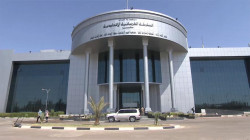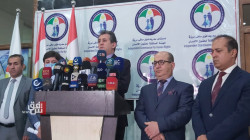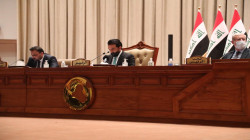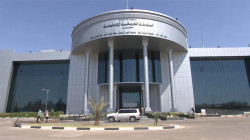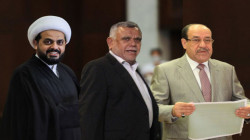Between welcome and skepticism: diverse opinions on the Federal Court decision regarding blocking "offensive" websites

Shafaq News / With the widespread use of social media, Iraqi authorities are imposing strict measures to regulate the content posted on these platforms, especially concerning insulting and offensive content towards individuals. However, experts argue that the court's decision should be thoroughly studied first and not subject to notions.
On Thursday, the Supreme Federal Court (the highest judicial authority in Iraq) issued a decision obligating relevant authorities to block websites and pages on social media platforms that disseminate pornographic, indecent, and offensive materials towards religions, beliefs, and individuals in the country.
Mixed reactions
Political writer and analyst Saeed Al-Badri commented on the court's decision, stating to Shafaq News Agency, "Many parties welcome these measures, but on the other hand, they are subject to skepticism by others, as the issue is related to ideology."
Al-Badri explained, "Some see the implementation of such measures as a victory for their ideological and social values, while others see it as an encroachment, advocating for uncontrolled matters. Hence, we are facing two schools of thought striving to assert their values."
Realistically, it seems logical to block offensive websites, as they indeed qualify as offensive, Al-Badri affirmed. He emphasized that the Iraqi judiciary does not rely on emotional standards in cases of offense; there are definitions and limits. Since there are offensive sites, they deserve punishment.
The political analyst pointed out that the Iraqi Penal Code had addressed many details regarding penalties, but the recent confirmation by the Federal Court is part of a set of measures and obligations for relevant authorities to fulfill their duties.
"In a previous stage, there was a judicial order from the Federal Court regarding the blocking of pornographic websites, but due to the difficulty of implementation, especially with the vast amount of internet traffic and the policies of internet companies and applications, this matter seems challenging."
Notably, the Supreme Federal Court issued a similar order at the end of 2023 to block pornographic websites across Iraq.
Fadel Al-Ghrawi, head of the Strategic Center for Human Rights, said, "The decision issued by the Federal Court is one of the important decisions at this time, but its basis was regulating the use of social media."
Al-Ghrawi added to Shafaq News, "The Iraqi Constitution clearly and explicitly refers to ensuring freedom of opinion and expression, but at the same time, there was an indication regarding the protection of freedom from the perspective of not violating public morals and public order."
He continued, "The recent decision came based on this criteria in regulating the use of social media and achieving the primary goal of protecting society from all aspects related to excessive use of this space and its negative impact on society due to the negative use of social media."
Between criticism and freedom of expression
Experts emphasized the importance of "not judging" such decisions based on personal biases towards the offensive or non-offensive nature of the content, as what may be considered offensive from one perspective could be criticism from another.
Member of the Parliamentary Human Rights Committee, MP Nissan al-Salihi, told our agency, "Any decision must be studied first, and judgment should not be based on biases towards whether it is offensive or not, as what may be considered offensive from one perspective could be criticism from another."
For his part, legal expert Ali Al-Tamimi warned, saying, "There is no clear definition of the difference between criticism and critique, which is important with the widespread use of social media, while we notice that the Penal Code clearly distinguishes between defamation, slander, and libel."
Al-Tamimi explained, "Critique aims at reform, correction, and goodness, while criticism is blame and exposing the hidden. Critique is a void in the element of moral crime, which is the basis of the crimes of defamation and slander, while criticism is attributing an incident to a person, which, if true, makes him an object of contempt in his community and violates feelings."
He added, "Critique is goodwill and is the appearance of goodness and the essence of beauty, while criticism contradicts customs, traditions, and prevailing norms. Critique assumes goodwill and is covering others and assisting by extending a helping hand, while criticism is an attempt to drown others in troubles and escape from duty."
The legal expert clarified, "However, there are fine lines between the two that require precision in differentiation, and the criterion between the two is anything that constitutes a crime. What constitutes a crime is abusive criticism punishable by law, while its opposite is criticism, which is sound."
He explained, "Nevertheless, the difference is not easily discerned except by knowing the intentions (criminal intent) and which the investigation reveals."
Regarding the supervision of social media, Al-Tamimi believed that "a special department should be established in the Media and Communications Authority as an amendment to Law No. 65 of 2004, and this department should include a number of experts in media and law who monitor what is published and be linked to the executive director of the authority. In the case of constituting a crime, it should be referred to the competent court according to the local jurisdiction close to the authority, and this supervision is linked to other security authorities that receive information from it."
The legal expert concluded, "The Penal Code punishes in Article 403 imprisonment for two years and a fine for publishing indecent material, and Iraq needs legislation against electronic crimes to be a solution to such common crimes."
At the end of 2022, Minister of Communications Hayam Al-Yasiri directed the blocking of pornographic websites in Iraq, a decision welcomed by Islamic and religious circles. The decision came days after a decision by the Ministry of Transportation in the Kurdistan Regional Government to ban "pornographic" websites.
Notably, Iraq's Constitution guarantees freedom of opinion and expression, highlighting its importance as a fundamental right. However, it also emphasizes the need to safeguard public morals and order, reflecting the delicate balance in regulating expression in a diverse society.
